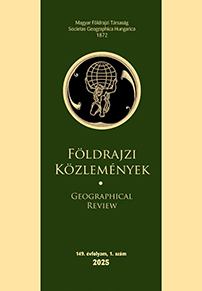THE ETHNO-GEOGRAPHICAL SITUATION OF ABKHASIA ACCORDING TO CENSUSES IN THE REGION
Abstract
The past and present of Abkhazia, a de jure part of Georgia and a de facto state in the Caucasus, has been largely determined by the Russian superpower aspirations present in the region since the 16th century, as well as by the numerous ethnic and religious groups living in its territory and their relations with each other. The separatist territory on the Black Sea is thus far from being the peaceful tourist paradise that its favorable location could make it be, its situation is largely shaped by the ethnical and religious conflicts within its population. But how did a situation like this develop? How has the presence of the Abkhaz, who form the majority according to the latest (2011) census, changed within the region named after them? What historical motives set them in opposition to the other ethnic groups living here? This publication seeks answers to the above questions, linking the development of ethnic relations throughout the past 140 years, which can be described by censuses. Its aim is to review the historical roots of the ethnical lines that divide the region today and to present the quantifiable changes since 1886 using census data. The most striking is the change in the ethnic spatial structure of the Abkhazian population, considering both the number of ethnic groups living here and their proportion within the total population. In addition to the violent interventions by the authorities in the population structure during the Soviet era, it focuses on the data of the last Soviet census held in 1989 and the changes that have occurred in the censuses held since then. It illustrates the development of ethnic relations in the region with maps and diagrams prepared using the collected data.
Copyright (c) 2025 Kristóf Hosszú

This work is licensed under a Creative Commons Attribution-NonCommercial-NoDerivatives 4.0 International License.



